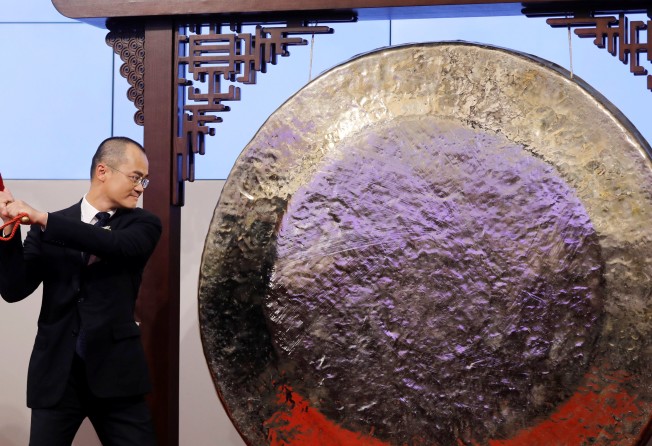Hong Kong stock exchange plans to scrap paper IPO applications in a bid to be more competitive, say sources
- HKEX plans to take a major step towards becoming an entirely paperless bourse by shifting to a fully electronic subscription process, according to two people familiar with the situation

Hong Kong’s stock exchange is aiming to cement its position as the world’s leading IPO market by cutting out the paperwork, sources revealed.
It plans to take a major step towards becoming an entirely paperless bourse by shifting to a fully electronic subscription process for initial public offerings, according to two people familiar with the situation.
The move, aimed at making the city’s stock market more competitive, would dramatically speed up the process, cutting the delay between the close of an IPO and the first trading day, said the sources, who spoke on condition of anonymity.
“The problem with the [current] process is it’s very slow. The current model, which involves a lot of paperwork and cheque clearing means a company can only be listed about five days after the close of the offering,” one of the sources said.
“By making the subscription process purely electronic, including online fund transfer instead of cheque payment, it will speed it up the whole process. This means the company may be able to have their shares trading two or three days after the close of the offering. It will cut down costs and enhance efficiency.”
For the last two decades, Hong Kong has stuck to a hybrid model enabling both paper and internet-based subscriptions.
Investors can fill in a paper application form and pay by cheque at their bank branch or a broker’s office and then receive a share certificate by mail, or a refund if their subscription fails. They also have the option of using the electronic application system, known as eIPO, and transferring the funds online.
Under the new proposal, Hong Kong Exchanges and Clearing, which operates the bourse, would scrap the paper application channel completely.
For elderly investors who do not use the internet, the exchange will propose allowing brokers to handle their electronic applications for them, the sources said.
The next step would be to cut out the physical shares certificates, but the sources admitted that would be difficult.
“Existing listed companies may have many old-age investors who have their physical certificates at home. We cannot force them to convert these certificates into an electronic record,” one source added.
The whole exercise is aimed at bringing Hong Kong’s IPO process into line with international standards. Many overseas exchanges abandoned paper IPO subscriptions a long time ago.
A report by the Financial Services Development Council in 2014 found that “the share allocation and price discovery processes for Hong Kong IPOs are inflexible compared with other advanced markets of the world”.
Hong Kong IPOs need five days to settle, and the company’s shares can only start trading five days after the close of the offering. In both the US and the UK, shares can start trading one day after the book closes, and settlement requires only three days, according to the FSDC report.
“At least half of all retail investors still use the paper-based method to subscribe for new shares, so they may need time to adjust to the new system,” said Christopher Cheung Wah-fung, a lawmaker representing for financial services industry. “But then if it can help HKEX to compete with other markets, the investors would support such a move.”
Hong Kong’s stock exchange reclaimed the crown as the world’s No 1 market for initial public offerings in 2018, thanks largely to a major listing reform it carried out in April to attract technology with a dual-share structure and pre-revenue biotech firms to list.
The city’s main board had a 17.6 per cent share of the global flotation market last year with 125 companies raising US$36.5 billion. That was the highest since 2010 and up 175.5 per cent from 2017, according to the Refinitiv, the data provider formerly known as Thomson Reuters.
Francis Leung Pak-to, chairman of the Chamber of Hong Kong Listed Companies, has warned that the city’s IPO market would face pressure from Shanghai when it launches a technology board this year. The mainland’s financial capital would be competing for the same start-ups as Hong Kong and the US.
Accounting and consulting firm KPMG said it expected listings to decline by HK$100 billion this year amid market uncertainties.